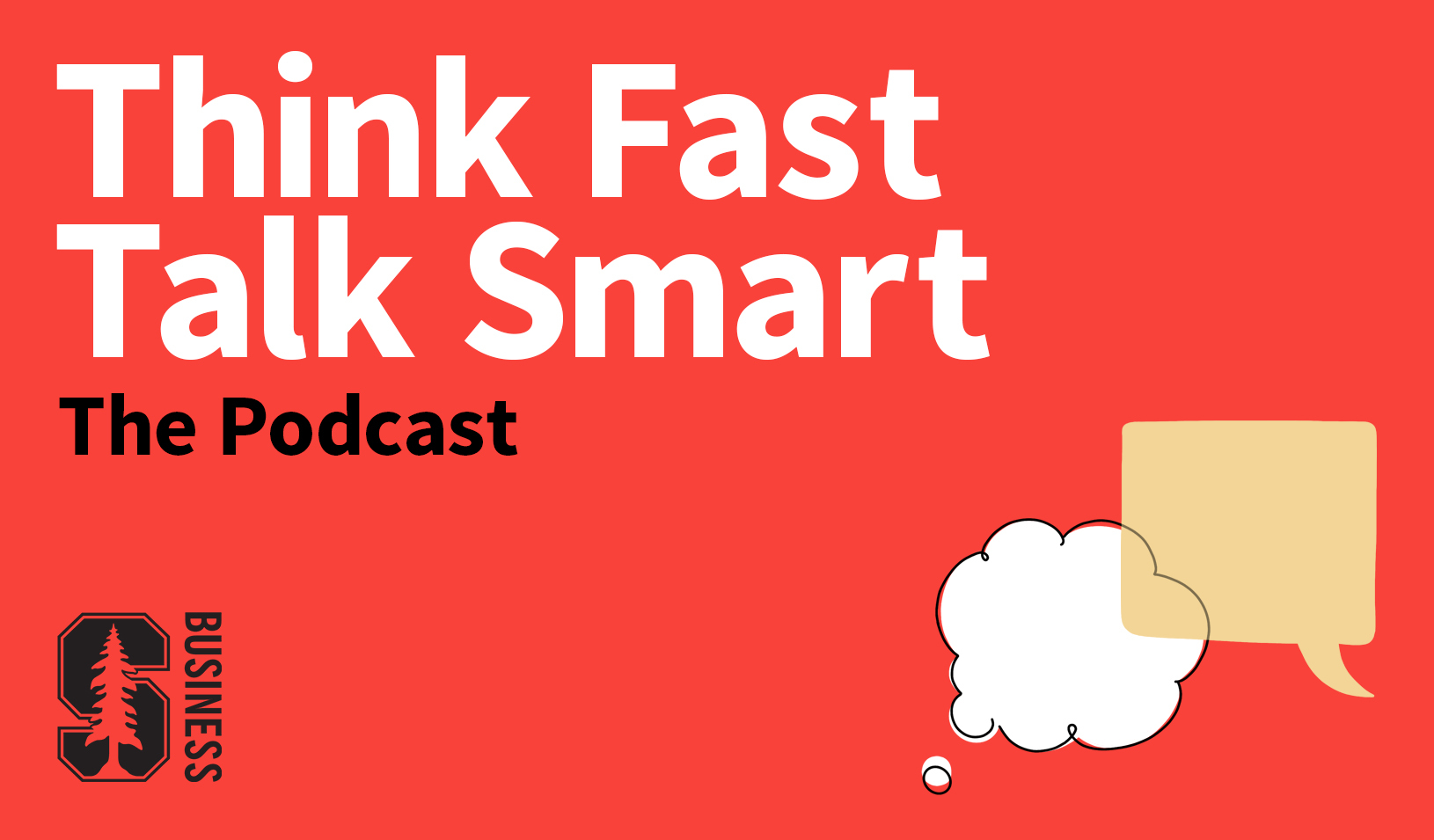John Donahoe, former CEO of Silicon Valley technology company eBay, explained the value of investing in a personal life to Stanford GSB students. | Reuters/Stephen Lam
The myth of high achievers is a straight line: They grow up wanting to be entrepreneurs, earn straight A’s, attend top-tier schools, join a world-class team, climb the corporate ladder, and then lead major companies.
The truth is, that line is rarely so tidy. People face adversity and personal setbacks. They hit career cul-de-sacs, experience failing relationships, and are forced to make tradeoffs to achieve their goals. Twelve-hour days at the office can feel lonely and anxiety-inducing. Failure happens.
“There’s no perfectly woven theme,” says retired eBay CEO John Donahoe at a recent Stanford GSB keynote lecture. “Hindsight is really easy. There wasn’t one moment during the last 30 years where I was certain I was doing the right thing. There wasn’t one moment when I was in the middle of it that I felt, ‘Great, I’ve got this all figured out.’ I still don’t.”
Donahoe, who earned his MBA from Stanford Graduate School of Business in 1986, described several inflection points in his life and career where he faced difficult choices and leaned on others for support and help. He urged students to invest in themselves outside of their careers, with the goal of developing a great life, not just a great career.
Build a Whole Life
For every minute an elite athlete spends on the field, they’ve spent hours off the field, deliberately investing time in their mental, physical, and emotional health. Highly successful people do the same.
That takes the form of small things, like eating well, exercising, and getting enough sleep. It could also mean hiring a therapist or a life coach to help build a framework to understand the world. Being able to travel through life with supportive communities of people is key, Donahoe says.
Shortly after graduating Dartmouth, Donahoe joined Bain & Company with seven other young consultants. For several years, the group met once a month for breakfast, where they shared successes, but also failures and frustrations. Building a supportive community at work helped Donahoe make it through his early years at Bain.
Similarly, for the past 15 years, Donahoe and his wife, Eileen, have met once a month with five other couples to spend time together and open up about their lives, their families, and their careers.
“That community was an investment in ourselves,” Donahoe says. “If you want to be world-class, you have to invest in yourself. And all this stuff that some people think is kind of fuzzy, I don’t view it as fuzzy. I view it as the only way you can perform at the highest levels.”
Look for Creative Solutions
A few years after Dartmouth, Donahoe and his wife were accepted into Stanford as postgraduates — John into the Graduate School of Business, and Eileen into Stanford Law. They had their first child, Jack, as John was entering finals for his first school term.
The couple experienced an inflection point: How would they balance being young parents and graduate students? Donahoe felt stuck. He went to the dean to discuss possibly taking a year off. Instead, the dean urged him to continue his studies and go part time, if needed.
Donahoe followed the dean’s advice, figured out a way to balance schoolwork and fatherhood, and ended up graduating on time.
Four years later, the couple found themselves at a similar turning point: Eileen had graduated and was working for a federal judge in San Francisco who required her to be in court at 7:30 every morning. John was traveling constantly for Bain. The couple now had two young children in school. John considered quitting Bain to get a job closer to home.
Donahoe went to his boss, who offered a creative solution: The company would find a client in the Bay Area that Donahoe could work with so he could drop his kids off at school every morning.
“That was the most productive year of my career,” Donahoe says.
He urged students not to look at their careers and relationships as zero-sum equations: You don’t have to choose between children and a career, one partner’s job over the other’s, advancement over personal health. Instead, look at life as a positive-sum equation. Try to get as much out of it as possible, and look for creative solutions along the way.
Embrace Failure
Most high achievers like to win. Early in his career, Donahoe said he felt anxious, particularly when he had to make big decisions. His first boss at Bain offered him a sports analogy to help him get over his fear of failure.
A gifted young baseball player played Little League through college ball, hitting an average of nine out of 10 pitches. Now, taking his first at-bat in the Major League, he was wracked with anxiety that he would fail.
The fact is, Donahoe’s boss said, hitting .900 in the Major League is impossible. The best baseball players in history are lucky to hit .350 — they miss two out of three swings. They sometimes strike out in a crucial moment, costing their team the victory. They drop balls, make bad plays, and disappoint their fans.
The difference, Donahoe’s boss said, is that world-class baseball players wake up every game day ready to swing the bat.
Donahoe took that advice, eventually rising to become president and CEO of Bain in 1999. He later led eBay through a corporate turnaround that eventually saw its annual revenue double.
“Get in there and swing,” Donahoe told GSB students. “I’ve been the CEO of two companies. I’ve had four children, dual careers, a lot of experiences. You can’t bat .900 in life. All you’ve got to do is bat .350 and don’t be afraid to get in there and swing.”
For media inquiries, visit the Newsroom.






